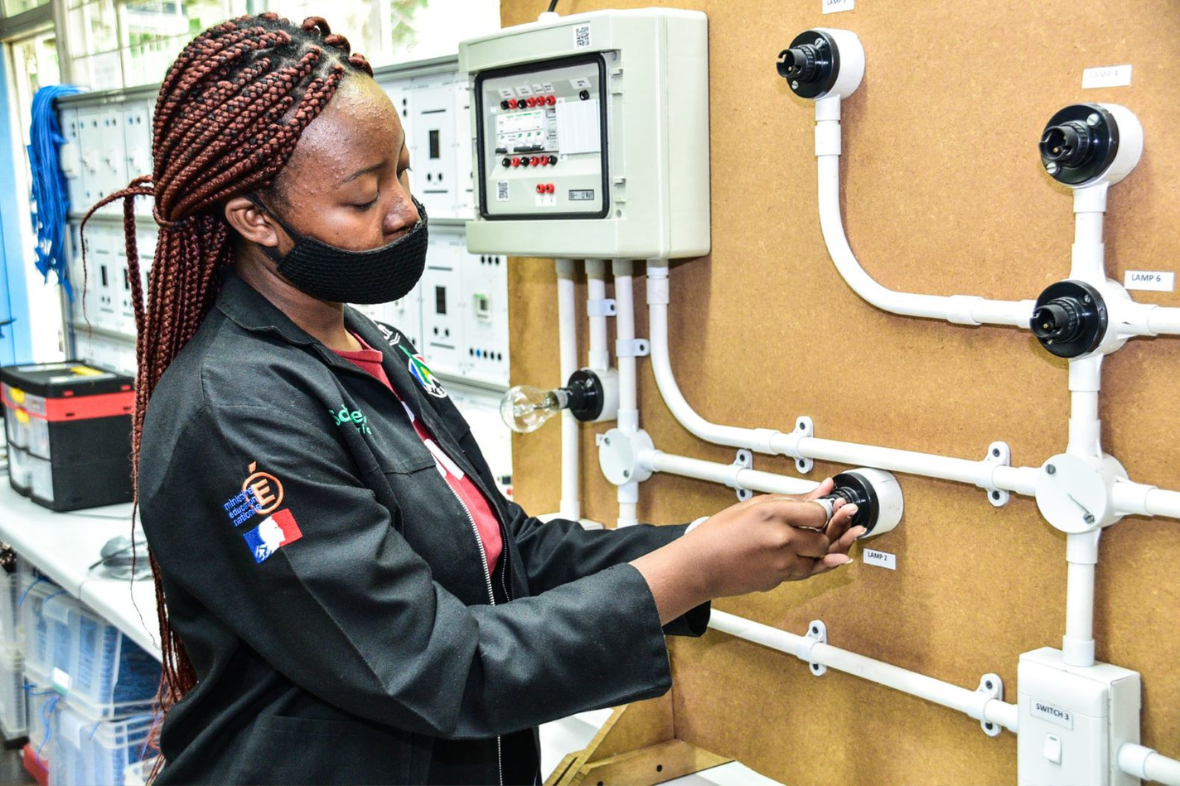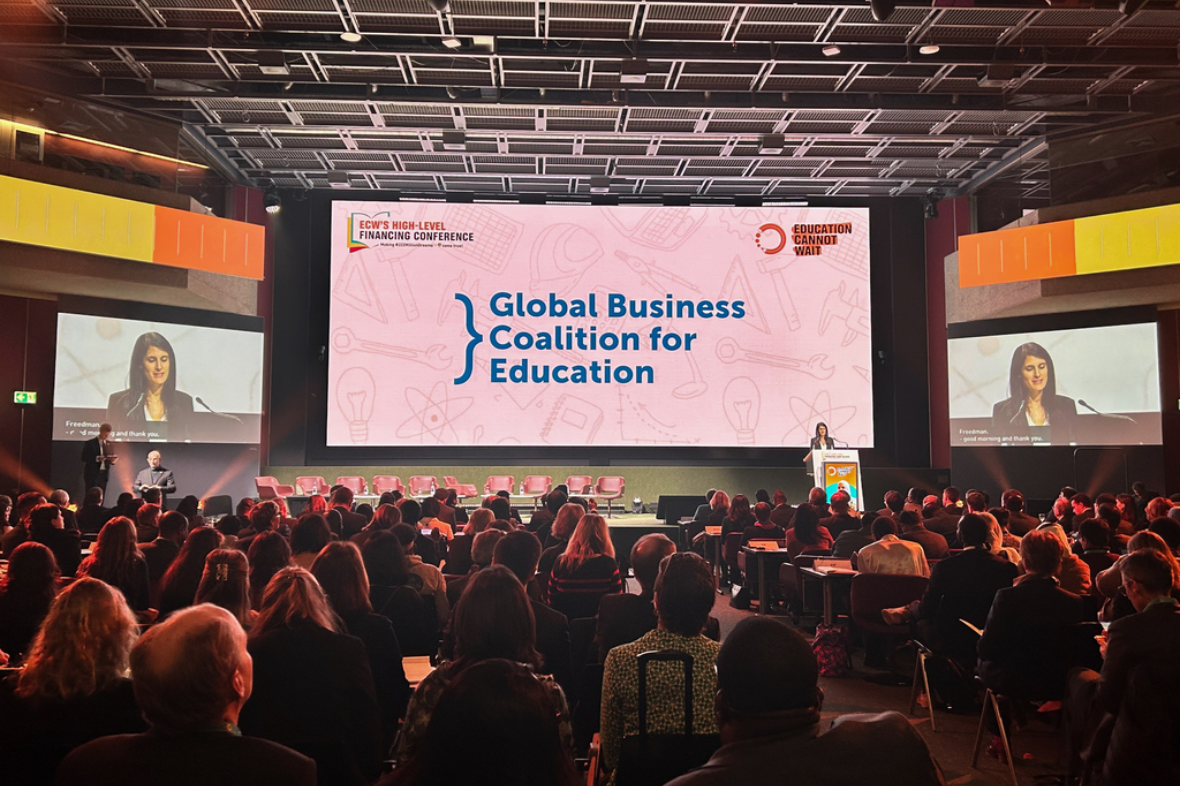
Business investment in education can be a game-changer for young people

News
We spoke with Diane Le Goff, Schneider Electric’s director of youth education and entrepreneurship programs. As ESG braces for political headwinds, especially in the U.S., we asked about the importance of education and training and the value of accurate ESG reporting.
What can one company learn from another’s successful ESG efforts that focus on education? A lot, it turns out. Members of our coalition teach each other. Consider the multinational Schneider Electric, which opened a technical high school in France in 1929 and has supported education ever since.
Now its foundation supports the development of technical and vocational training, working with more than 400 partners in 46 countries. We’re pleased to share news about their successes.
Why is education so important a part of Schneider Electric Foundation’s ESG strategy?
With a growing population worldwide under age 35, access to quality secondary education is not a guarantee everywhere. But it’s a challenge for society that is just as important as access to energy or to health care.
We are an industrial company with a long history, and we have a lot of expertise in our sector, so it makes sense for us to support technical and vocational education and training.
For more than 15 years, Schneider Electric has aligned its business mission with its ESG strategy, involving all the company’s functions and setting ambitious targets.
Tell us about your education programs.
We support technical and vocational education programs in the energy sector, supporting students to gain a national certificate or diploma. We can provide training in domestic building management systems, how to program and manage lighting systems and security alarms, or industrial electricity systems.
Or we will bring in a solar energy system for students to learn how to wire, install and maintain. We work on residential, industrial and renewable energy.
We support soft skills and technical skills that are linked to the energy transition, to create awareness, knowledge and actions regarding climate change. We encourage innovation and entrepreneurship related to the energy sector and the energy transition.
In everything we do, we develop partnerships to have a gender focus, to have more girls involved in programs, take part in the energy transition and create future career opportunities for them.
After visiting many of the foundation’s projects, what do you think the students get out of them?
They can learn the energy trades with a focus on the practice more than the theory. They have their first industry exposure and usually feel more confident about the future. Often they are very proud; some come from very difficult economic backgrounds and can contribute to the livelihood of their family.
It can be a game-changer to learn a trade that will advance their access to employment and develop the energy industry in their country.
Schneider Electric has been a member of the Global Business Coalition for Education since 2019. Why is our coalition valuable to your company?
We truly believe that the private sector has to invest in education, but it’s not something that always comes naturally. So it’s important to have a coalition that promotes and advocates for businesses to invest in education.
When we talk about education having an impact, we are all stronger, of course, if we are collaborating with other players. For example, when it comes to social impact measurement, there are no real agreed standards yet, so the coalition can help build a collective solution.
Recognizing the debates about the value of ESG, “greenwashing” and so on, can you explain how Schneider Electric handles reporting and measuring impact?
For more than 15 years, Schneider Electric has been aligning its business mission with its ESG strategy, involving all the company’s functions and setting ambitious targets.
Based on our Schneider Sustainability Impact and our global KPIs, we do ESG reporting every quarter, publishing the result at the same time as financial results. We are audited by an external auditor every year. We’re building a global methodology and tool for our partners, for effective measurement strategy. For several years, we have been integrating it in our partnerships.
We are looking at students’ job placement but after they finish a training program it’s hard to follow them. So we also look at impact data to understand: Are they able to use the equipment? Have they advanced their knowledge? Do they want to pursue a career in the energy world?
Is this what investors want?
Investors are looking for more transparency, more effectiveness in what we are doing in ESG. There is always a question about short- and long-term action. If you want longevity in companies, it will be compromised if you don’t have an ESG strategy.
Related Insights


